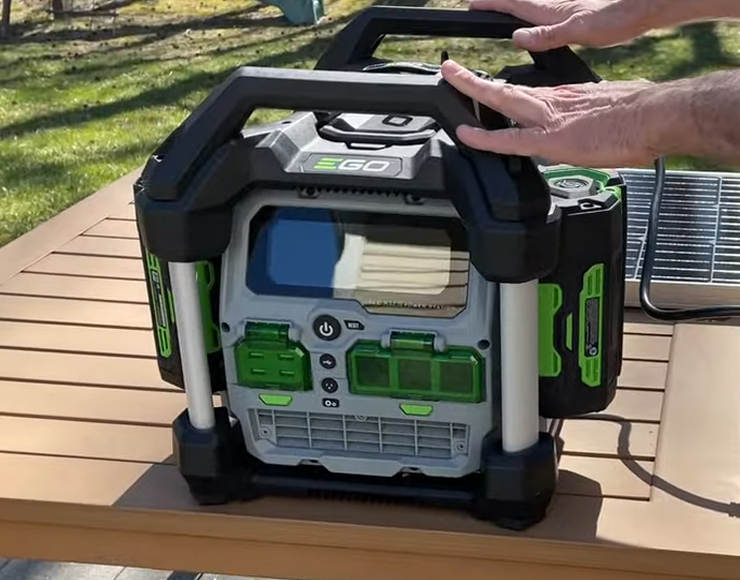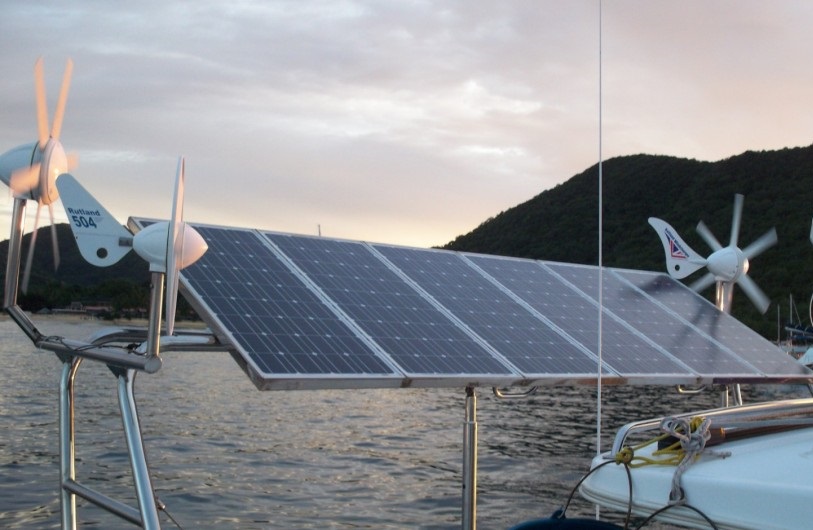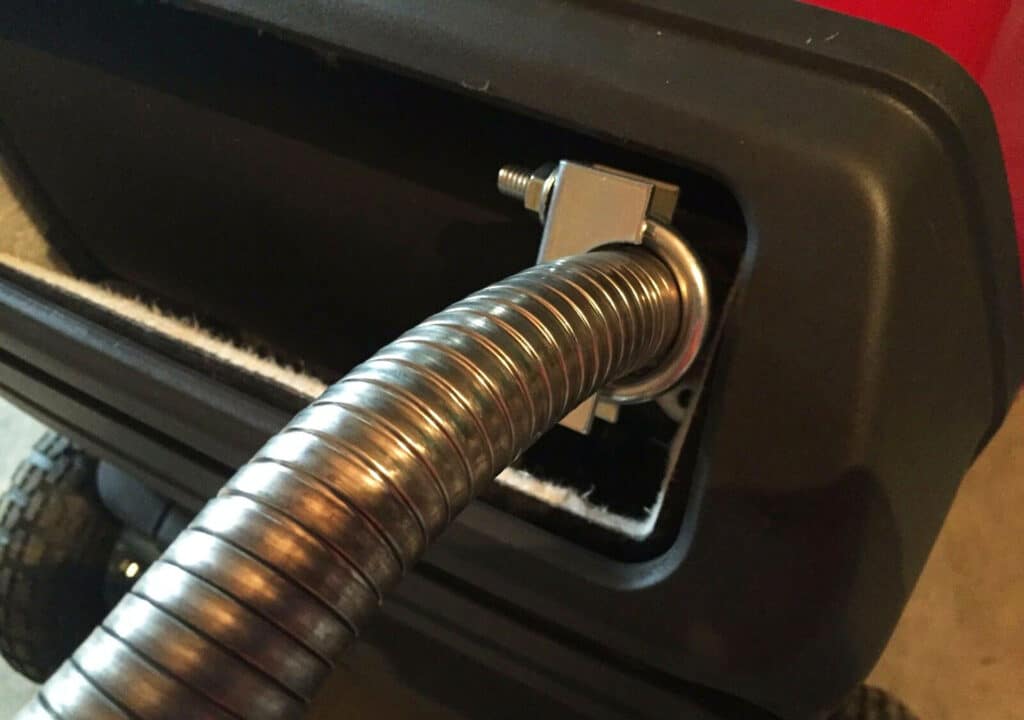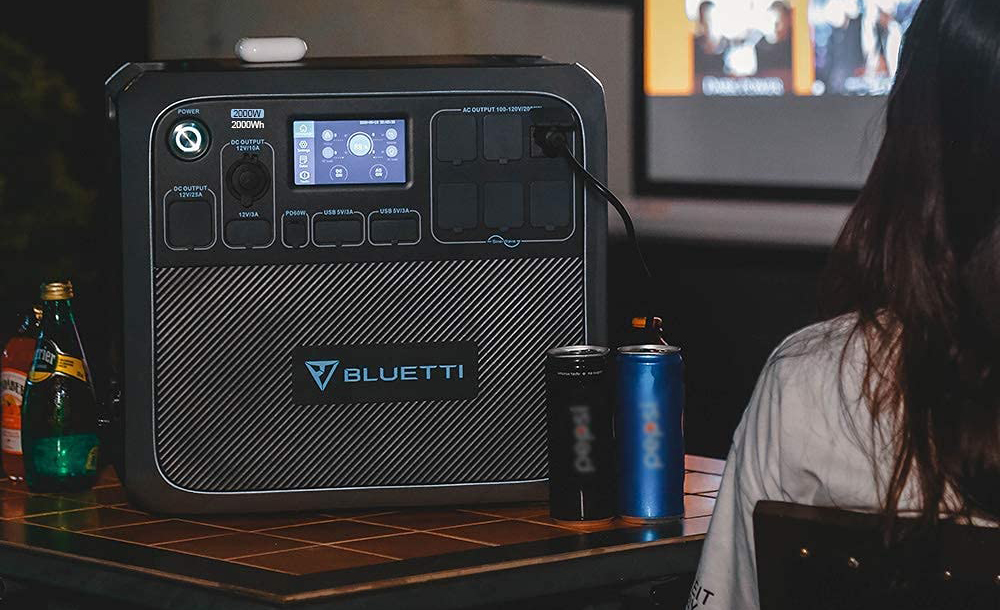
If you’re worried about powering your computer or a home entertainment system on your portable generator, a line conditioner can help. Line conditioners are designed to reduce the total harmonic distortion of the electricity your generator produces so that you can safely power sensitive electronics.
We looked at 12 different line conditioners in order to find the best line conditioner for generators. Competition was fierce, but the Tripp Lite LC2400 took our Editor’s Choice for its ability to suppress surges up to 1,440 joules, six outlets, and diagnostic LED lights. We also liked three other line conditioners, and you can find reviews of those below as well.
When looking at line conditioners, there was a lot to consider. We looked at the output watts and voltage, since that impacts what you’ll be able to run with your generator. We also inspected voltage regulation limits and surge suppression ability, since these highlight what conditions each line conditioner is capable of handling. Finally, we made sure there were plenty of outlets to power your stuff. You can find detailed reviews of each of our top three generator line conditioners below, along with a buying guide that explains everything you need to know when choosing the right power conditioner for your generator.
More features: front-panel diagnostic LEDs; 80 dB noise suppression; 2-year limited warranty
The LC2400 is one of Tripp Lite’s best-selling models for a good reason. This line conditioner offers up to 2,400 watts of output power and can regulated voltages from 89 to 147 volts. While the nominal output voltage is 120 volts, users found that the actual output ranges between 100 and 130 volts depending on how low or high the input voltage from your generator is. On top of that, this power conditioner is capable of handling surges up to 1,440 joules, which provides a ton of peace of mind when you want to power sensitive devices.
One of the things users liked most about this generator is that it has a series of LED lights to show you what it’s doing. You can monitor whether the input from your generator is excessively or low, or whether there’s a trip in the conditioner you need to worry about.
The LC2400 is generously equipped with outlets – four 15-amp outlets and two 20-amp outlets. The 20-amp outlets are particularly useful if you’re planning on drawing the entire 2,400 watts through a single outlet or two.
Even better, users liked that this line conditioner is relatively compact for how much surge it can take. The one fault they noted is that it protects against large surges by burning out sacrificial electrical lines, so you’ll need to replace these lines after a number of surges. Unfortunately, the diagnostic lights don’t tell you when it’s time to replace the sacrificial surge lines.
More features: rackmount cabinet fits standard 19-inch rack enclosures; 80 dB noise suppression; 2-year limited warranty
The LCR2400 has a lot in common with our Editor’s Choice LC2400, including the same 2,400-watt output and 1,440 joules of surge suppression. It also sports the same nominal 120-volt output and a regulating range of 87 to 147 volts. The actual output varies from 100 to 130 volts depending on your generator’s input, but is relatively consistent and safe for sensitive electronics.
Users loved that this power conditioner comes with fully 14 outlets, which are arranged in two filter banks to help isolate some of your most sensitive devices. The unit is also shaped to fit most standard 19-inch rack enclosures, which makes this unit perfect for semi-permanent installation in your home or at a work site.
As for the LC2400, you can monitor the voltage coming in from your generator with a series of LED lights. That’s useful if you’re worried about power fluctuations and want to make sure the line conditioner is working properly.
There was one common complaint about this line conditioner, which is that it makes a low electrical hum when in use. In theory, this hum is covered under warranty, but users noted that it doesn’t impact the functioning of the unit and most didn’t mind it. This is only a problem if you are using the line conditioner for an audio or home entertainment system.
More features: EMI/RFI noise rejection, 8 ft. cable, LCD display, rack or shelf mounted
The APC G5BLK is hands down the best line conditioners you can get for your video and audio equipment. The G-type rack-mountable line conditioner has a maximum input current of 15A that facilitates maximum AV power protection from all damaging power transients and electrical noise interference. Moreover, it offers a whopping 1800 watts of output power and a nominal output voltage of 120 volts. Best of all, the line conditioner is capable of handling surges of up to 3400 joules, which is pretty impressive for its price range. The surge suppression offers the much needed peace of mind when you power on some sensitive devices.
The line conditioner features an LCD display that will show you everything going on with it, including your generator’s input level. It also has the effective EMI/RFI noise rejection that guarantees you the peace and quiet you would need when using video and audio equipment to record or listen to music or any other content.
You can mount the APC G5BLK line conditioner on a rack or shelf with the rack-mounting brackets it comes with. The 8ft cable and nine outlets offer great flexibility. Plus, you get a lifetime warranty cover, which is enough proof that the line conditioner is made to serve you for life.
More features: 3 LEDs indicating voltage boost, trim and normal operation; 20 dB noise suppression; 2-year limited warranty
This compact power line conditioner from Tripp Lite is perfect if you have a single appliance or a few small devices that are sensitive to surges. The unit is capable of putting out just 600 watts of power, which can be limiting for larger appliances. However, this line conditioner is also inexpensive enough that you can get two of them for your generator as needed – and still end up paying less than for one of Tripp Lite’s larger models. For reference, Tripp Lite recommends using this line conditioner for a computer, modem, wireless router, or television.
The line conditioner sports an even wider voltage range than the LC2400 and LCR2400 models, and users found that it gets very close to restoring 120-volt power over that entire range. The 720-joule surge suppression isn’t quite as impressive, although it’s proportionally more suppression for the power this unit is designed to pass through. However, you’ll likely want to use this line conditioner with a smaller generator to avoid enormous surges.
Users were happy to find that the power conditioner is equipped with six outlets and makes absolutely no noise when operating. Three LED lights show when voltage is being boosted or diminished, as well as when the unit is running properly.
Overall, if this power line conditioner has enough power for your appliances, there’s a lot to like about it.
Now that you’ve learned more about our three favorite power line conditioners for a generator, how do you choose which one is right for you? In our buying guide, we’ll explain everything you need to know about line conditioners – from why you need one to how to pick the best model.
Portable generators provide a huge amount of power at a very affordable price. But, the power they produce is “dirty” in that it has a high degree of total harmonic distortion. That dirty power can damage your sensitive electronic devices, like computers, televisions, and kitchen appliances. A power line conditioner helps you clean up your generator’s power output and protects your devices.
Not only that, but a power line conditioner is designed to help protect your devices from surges and brownouts, which can occur frequently with gas-powered generators. Essentially a line conditioner smooths out both the quality of the power and its supply, so that your appliances are getting close to the same type of power that they’d get if they were plugged in to a wall outlet at home. So, a line conditioner can help your appliances run longer and more efficiently.
A line conditioner is supposed to smooth out the power produced by your generator. However, power line conditioners for generators have different smoothing capabilities, which can affect their output
The first thing you need to consider is how much power your line conditioner can handle. You may have a 4,000-watt generator, but if your line conditioner can only handle 2,000 watts, that’s all the power you’ll be able to draw through it. The Tripp Lite LC2400 and LCR2400 both offer output up to 2,400 watts, while the LS606M can only output up to 600 watts.
Ideally, your line conditioner’s wattage should match your generator’s wattage. In reality, you just need enough wattage to power your sensitive electronics, and less sensitive appliances can still be plugged directly into your generator.
It’s also important to think about output voltage. Most appliances run on 120-volt power, which is why all of the line conditioners we looked at are rated to output 120-volt electricity. However, if you have 240-volt appliances, you’ll need a line conditioner that can put out more voltage.
Regulating the voltage of the electricity produced by your generator is one of the primary functions of a power line conditioner. The voltage regulation describes the upper and lower bounds of voltages that your line conditioner can handle and smooth out to 120 volts. In general, a wider voltage regulation band is better. All of the Tripp Lite models we looked at have a very wide range, accepting any power from 87 to 147 volts or wider and converting it back to 120 volts.
Surge suppression is the other big task of a line conditioner. Unfortunately, portable generators can produce surges and brownouts without warning relatively often. A line conditioner’s surge suppression rating describes how much power, in joules, it can absorb without passing any of the surge onto your plugged-in appliances.
More surge suppression capability is better, especially if you’re running a larger generator. The Tripp Lite LC2400 and LCR2400 can each suppress 1,440 joules of surge power, while the smaller LS606M can suppress 720 joules.
You need as many outlets as you have appliances that you’re planning to plug into your line conditioner. More outlets are always a good thing, but it’s worth noting that line conditioners, unlike generators, typically have more outlets than you need.
If you have very heavy-duty appliances, it might also be worth looking for 20-amp outlets like you’ll find on the LC2400 model.
Line conditioners also work to suppress the noise – that is, total harmonic distortion – of your generator’s electricity. This effect is harder to measure, since it depends on your generator’s initial power quality. But, make sure that the line generator that you get is designed to clean up the electrical waveform if you plan to use it with very sensitive electronics like a computer or smartphone.
Ideally, your line conditioner should be as simple to use as a surge strip. Just plug it into your generator and plug your appliances into it. Some models, like the Tripp Lite LC2400, come with LED lights so you can see when the conditioner is working properly and when it is having difficulty handling the input from your generator.
All of Tripp Lite’s power line conditioners for generators come with a two-year limited warranty. That’s important, since these are electrical devices designed to handle surges – so imperfections can happen, and they negate the usefulness of your line conditioner when they do. On top of that, it’s worth looking for good customer service. Tripp Lite offers free technical support via phone or email.
Our three overall favorite line conditioners for generators on the market today are the Tripp Lite LC2400, LCR2400, and APC G5BLK. The APC G5BLK is our third best pick and the perfect line conditioner for video and audio equipment. It works great and packs a punch with its multiple superior features. For more robust power conditioning, the LCR2400 is capable of passing through 2,400 watts of power and controlling surges up to 1,440 joules. It also has fully 14 outlets across two filter banks. We feel the Tripp Lite LC2400 is the overall best line conditioner for generators thanks to its large power capacity and surge suppression capabilities. It’s impressively affordable, features easy-to-read diagnostic lights, and offers a pair of 20-amp outlets for heavier appliances.





